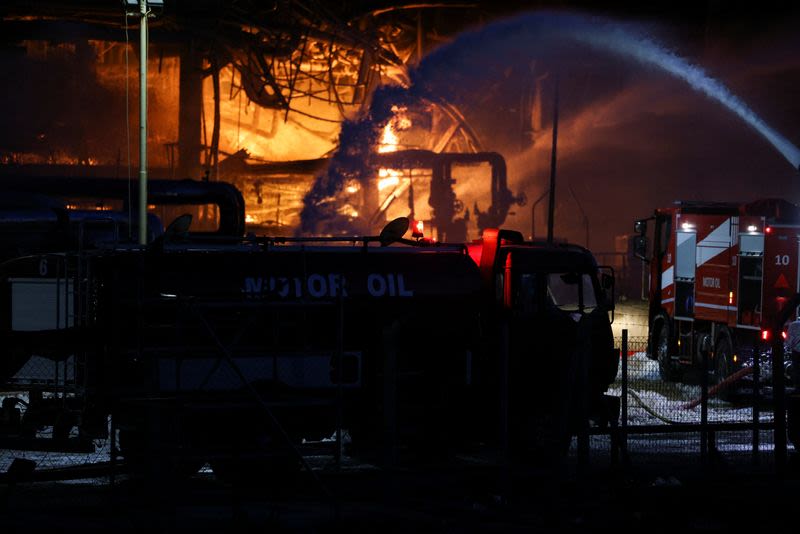Search results
- DictionaryOil/oil/
noun
- 1. a viscous liquid derived from petroleum, especially for use as a fuel or lubricant.
- 2. oil paint: "a portrait in oils"
verb
- 1. lubricate, coat, or impregnate with oil: "I'll oil that gate for you tomorrow"
- 2. supply with oil as fuel: "attempts should not be made to oil individual tanks too rapidly"
The meaning of OIL is any of numerous unctuous combustible substances that are liquid or can be liquefied easily on warming, are soluble in ether but not in water, and leave a greasy stain on paper or cloth. How to use oil in a sentence.
Oil definition: any of a large class of substances typically unctuous, viscous, combustible, liquid at ordinary temperatures, and soluble in ether or alcohol but not in water. See examples of OIL used in a sentence.
a thick liquid that comes from under the Earth's surface and is used as a fuel and for making plastics, etc.: More than 6,000 rigs were drilling for oil and gas. The oil price increase is a genuine concern. The oil exporting countries might not be able to meet rising world consumption.
An oil is any nonpolar chemical substance that is composed primarily of hydrocarbons and is hydrophobic (does not mix with water) and lipophilic (mixes with other oils). Oils are usually flammable and surface active. Most oils are unsaturated lipids that are liquid at room temperature.
News about Sean "Diddy" Combs, racketeering conspiracy, Hotel Manhattan
News about Crude Oil, Fed rate cut, Chinese economic data
News about Pakistan, West-East Gas Pipeline, oil companies
News about oil prices, South Sudan, decline
Definition of oil noun in Oxford Advanced Learner's Dictionary. Meaning, pronunciation, picture, example sentences, grammar, usage notes, synonyms and more.
OIL meaning: 1 : a thick, black liquid that comes from the ground and that is used in making various products (such as gasoline) often used before another noun; 2 : a type of oil that is used as a fuel to produce heat or light
1. any of a number of viscous liquids with a smooth sticky feel. They are usually flammable, insoluble in water, soluble in organic solvents, and are obtained from plants and animals, from mineral deposits, and by synthesis. They are used as lubricants, fuels, perfumes, foodstuffs, and raw materials for chemicals.
Any of a large class of liquid or easily melted substances that are typically very slippery and greasy. Oils are flammable, do not mix with water, and include animal and vegetable fats as well as substances of mineral or synthetic origin. They are used in food, soap, and candles, and make good lubricants and fuels. 2.
Oil Definition. Any of various kinds of greasy, combustible substances obtained from animal, vegetable, and mineral sources: oils are liquid at ordinary temperatures and soluble in certain organic solvents, as ether, but not in water. A protective or cosmetic liquid applied to the skin or hair. Petroleum. Oil paint.
As a mass noun: any of a number of liquids of natural or artificial origin which have a smooth, sticky, unctuous, feel and are insoluble in water (but soluble in organic solvents), more or less viscous, flammable, and chemically neutral.





